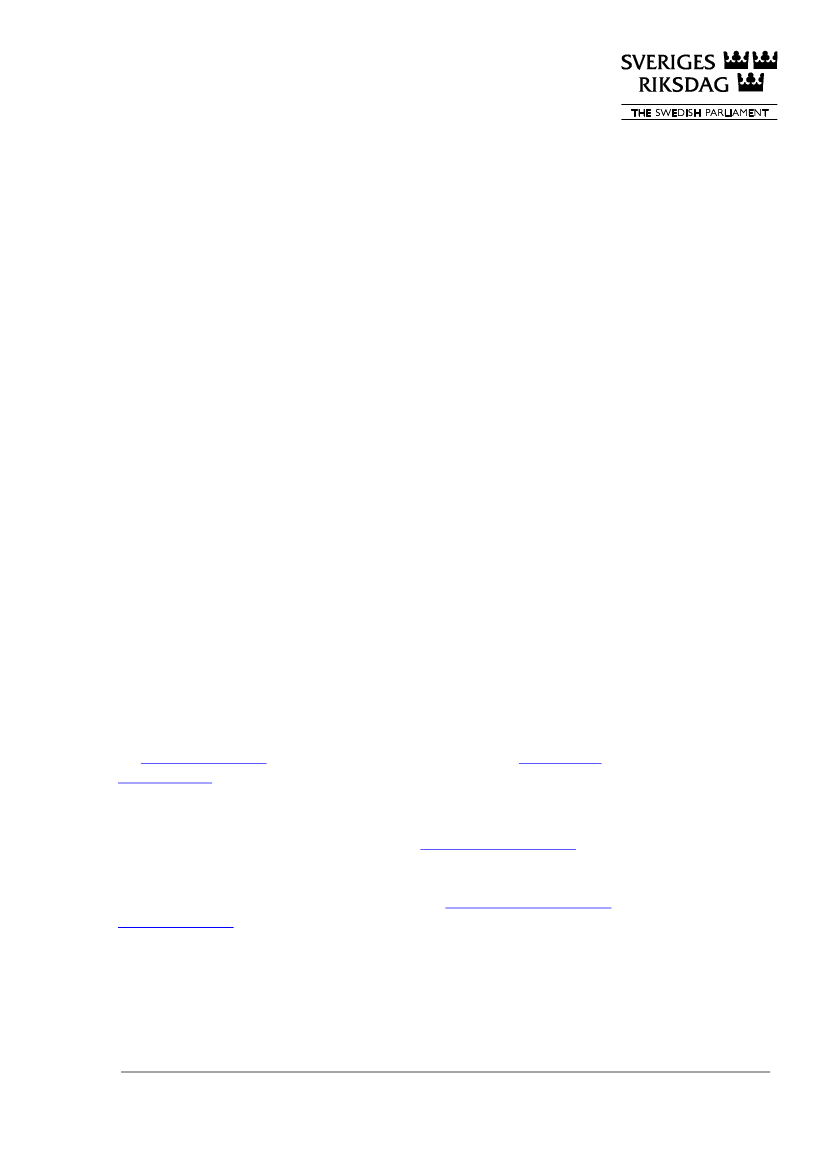
29 September 2014
Our ref. 2014:1351
ECPRD Request no. 2637
MEDIA AND PRIVACY VIOLATION OF INDIVIDUALS
1. Do you have legislation about compensation responsibility for defama-
tion and privacy violation of individuals exposed in the press?
2. Who has the right to take proceedings?
3. What is the compensation level for injuries to a person’s reputation?
Based on data from recent years.
4. What is the level of sentencing of media regarding publishing of incor-
rect stories?
5. Do you have an independent institution outside the courts dealing with
cases in relation to privacy violation from media?
6. Do you have any experiences about measure of compensation for injury
dependent on the economic income of the convicted? If yes, what are the
experiences?
Legislation
Defamation and gross defamation are regulated in Chapter 5, Sections 1 and 2 of
the
Swedish Penal Code.
Provisions on damages are found in the
Tort Liability
Act (1972:207),
in particular Chapter 2, Section 3 and Chapter 5, Section 6.
If committed by means of printed matter, the act of defamation shall be deemed
as an offence against the freedom of the press (tryckfrihetsbrott). This is regu-
lated in Chapter 7, Article 4, Paragraph 14 of the
Freedom of the Press Act.
If the
act of defamation is committed in a radio programme or technical recording it
shall instead be regarded as a freedom of expression offence (yttrandefrihets-
brott). This is regulated in Chapter 5, Article 1 of the
Fundamental Law on Free-
dom of Expression.
Elizabeth Lindell
THE RESEARCH SERVICE
Tel: +46 8 786 53 51
THE SW EDISH PARLIAMENT SE-100 12 Stockholm • Phone +46 8 786 40 00 • www.riksdagen.se
1 (3)